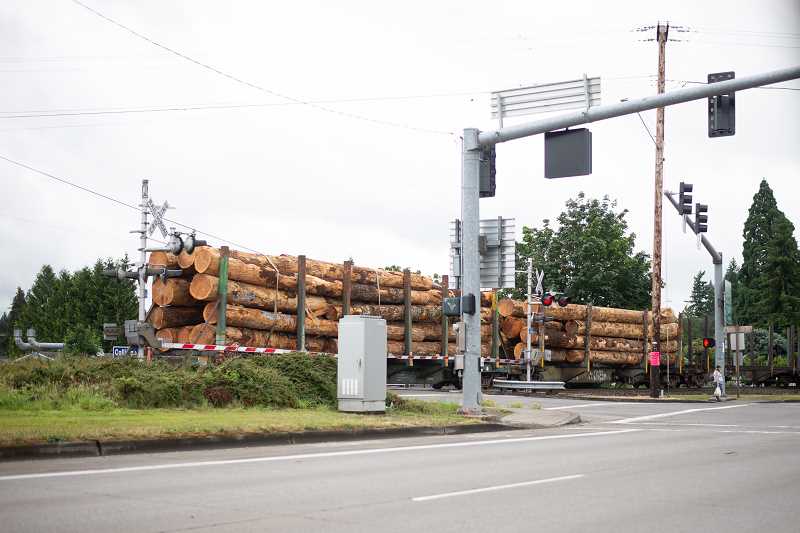The Portland Tribune and Pamplin Media Group’s papers are a KOIN 6 News media partner
PORTLAND, Ore. (PORTLAND TRIBUNE) — A proposal to raise taxes on timber sales won’t be getting any support from Columbia County’s board of commissioners this legislative session.
House Bill 2379 would impose a 5% tax on the value of harvested timber, decades after the state mostly phased out similar timber taxes.
Columbia County commissioners wrote to Rep. Brad Witt, D-Clatskanie, and the House Committee on Agriculture and Natural Resources last month in opposition to HB 2379 and a slew of other proposed bills relating to timber harvests.
“The current program of timber taxation in Oregon was developed over a period of time, with input from all stakeholders including counties, local governments, and industry. Any changes need to be thoughtfully developed by an interim working group of stakeholders,” the three county commissioners — Casey Garrett, Henry Heimuller and Chair Margaret Magruder — wrote.

More than three-quarters of Columbia County land is forestland, and 94% of that is privately owned, the commissioners wrote.
“The timber industry is already preparing and adjusting to new costs brought on by Oregon’s recent gross receipts tax and new regulations that may arise from the Oregon Department of Forestry’s Habitat Conservation Plan,” they noted. “The 2021 session of the Oregon Legislature is clearly not the time to pass additional legislation that may have potential negative economic impact. We need to take the time to develop a method that helps rather than hurts our communities.”
The commissioners’ letter addressed a handful of 2021 bills that would change the way timber sales are taxed or how that revenue is used: HB 2070, HB 2357, HB 2598, HB 2430, HB 2389 and HB 2379.
Logging companies used to pay severance taxes based on the value of trees they logged, but that tax was mostly eliminated. The severance taxes funded local governments and schools.
Existing harvest taxes in the state go toward state programs focused on forestry research, wildfire recovery, and administering the Oregon Forest Practices Act. Those rates have increased since the 1990s, from $2.14 per 1,000 board feet in 1994 to $4.13 in 2020.
In their letter, the commissioners also argued that any reinstated severance taxes should be reserved for local governments.
HB 2379 would institute a 5% severance tax and send 25% of revenue to counties for wildfire-related costs.
HB 2598 would institute an 8% severance tax for clear-cutting, with lower rates for selective harvesting, and send 70% to counties. (The Legislature hasn’t moved that bill along since January, meaning it is considered “dead” this session, although it could be offered again in the future.)
A separate proposal led by Tax Fairness Oregon would create a 6.5% severance tax and send 60% of revenue to counties.
At a February board meeting, Jody Wiser and Catherine Thomasson of Tax Fairness Oregon told commissioners that their proposal would bring $5.8 million to Columbia County per year. Those funds would be distributed to taxing districts throughout the county.
For context, property taxes in Columbia County totaled $78.9 million, with $10.6 million staying with county government; $35.8 million going to school districts; $13.7 million for fire districts; and the remainder going to cities, urban renewal and special districts.
The bills were introduced after reporting from OPB, The Oregonian/OregonLive.com and ProPublica detailed the ways wealthy timber companies have benefited from tax cuts that have come at a price for rural Oregon counties. Those companies have seen record profits in recent years, further reporting showed.
